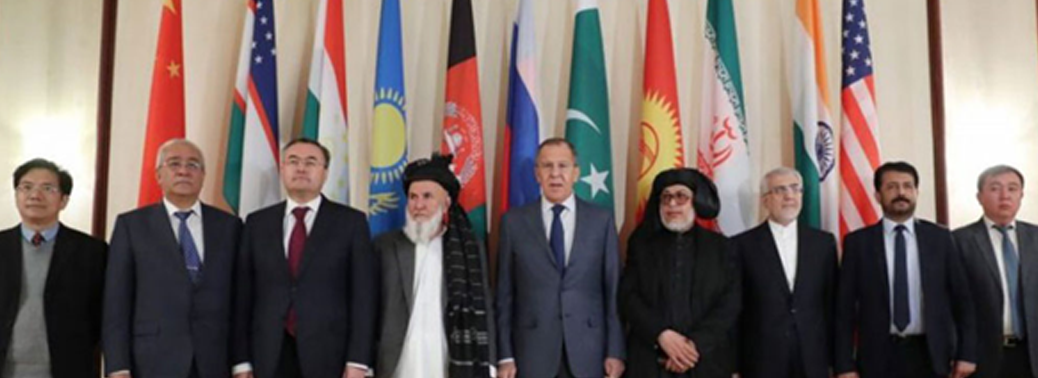AFGHAN PEACE AND INDIA’S ROLE
11, May 2020

Prelims level : International Relations
Mains level : GS-II Bilateral, regional and Global Groupings and Agreements Involving INDIA and/or affecting India’s Interests
Why in News?
- S. Special Representative for Afghanistan reconciliation in his visit to India, has suggested that India should directly talk to Taliban for a sustained peace in Afghanistan. This is the first time the USA has publicly suggested India to talk to the Taliban directly.
Highlights:
- Earlier, the Indian government had made it clear that India would not engage the Taliban directly, and had not changed its position on the issue.
- Recently, India was not included in a UN-coordinated “6+2+1” meeting of Afghanistan, its neighbours and U.S. and Russia recently, an exclusion New Delhi is understood to have protested. “6+2+1” group includes six neighbouring countries of Afghanistan: China, Iran, Pakistan, Tajikistan, Turkmenistan and Uzbekistan; global players the United States and Russia, and Afghanistan itself.
- The reason given for keeping India out of regional discussions on Afghanistan was that it holds no “boundary” with Afghanistan; but in fact it is because New Delhi has never announced its support for the U.S.-Taliban peace process.
- Objectives of the Trip:According to the U.S. State department, the trip is meant to build support for the full implementation of the US-Taliban agreement, which has been derailed by differences between the Afghan government and the Taliban over the release of prisoners.
- Part of the Confidence Building Measures leading to intra-Afghan negotiations, is that both the Taliban and the Afghan government have to release prisoners on both sides.
- Secondly that there must be a reduction in violence compared to the period before the agreement was signed.
- Thirdly, that in order to get lasting peace and bring the long war in Afghanistan to an end, the door to negotiations should be opened for a political roadmap and a permanent comprehensive ceasefire.
- International support for peace in Afghanistan is important and Indian support in particular was the focus of the Delhi trip.
- His next stop to Islamabad is also expected to stress the need for a ceasefire, which the Taliban has rejected, and to push for support in kick-starting intra-Afghan talks, which have already missed the recent deadline, set in the U.S.-Taliban February agreement, by two months.
USA-Taliban Pact:
- Recently, the US and Taliban signed an agreement for Bringing Peace to Afghanistan, which will enable the US and NATO to withdraw troops in the next 14 months.
- The key elements of the USA-Taliban pact: Withdrawal of troops: The US will draw down its troops in 135 days and the NATO or coalition troop numbers will also be brought down. And all troops will be out within 14 months (all would include non-diplomatic civilian personnel).
- What Taliban Committed:The main counter-terrorism commitment by the Taliban is that Taliban will not allow any of its members, other individuals or groups, including al-Qaeda, to use the soil of Afghanistan to threaten the security of the United States and its allies.
- Removal of Sanctions:UN sanctions on Taliban leaders to be removed by three months and US sanctions by August.
- On Prisoner’s Release:According to the agreements, 5,000 Taliban prisoners will be released by March 2020, the first day of intra-Afghan negotiations, and the remainder in another three months. A possible trouble spot because the US-Taliban agreement and the joint declaration differ.
- On Ceasefire:The agreement states ceasefire will be simply an item on the agenda when intra-Afghan talks start, and indicates actual ceasefire will come with the completion of an Afghan political agreement.
Challenges for the Pact:
- Terms Still Nebulous:The actual terms of the peace deal are yet to be negotiated between the Taliban and the Afghan side, facilitated by the U.S.
- Afghan Government Completely Sidelined: The Afghan government has been completely sidelined during the talks between the US and Taliban.
- Future of the deal depends on the Taliban: The future for the people of Afghanistan is uncertain, and will depend on how the Taliban honours its commitments and whether it goes back to the medieval practices of its 1996-2001 regime.
- Afghan Government Publicly Disagrees on terms of Deal:Just after the agreement, Afghanistan’s president said that he will not free thousands of Taliban prisoners ahead of all-Afghan power-sharing talks.
- Agreement on Ceasefire another Potential Trouble Spot:As the convergence between all stakeholders is difficult to achieve. India-Pakistan tussle: India and Pakistan are not talking to each other, is an impediment to the process in Afghanistan. For reconciliation in Afghanistan, support from Pakistan, India and the international community is very important
How India Influenced the Afghan Peace Process?
- At the Bonn agreement, India ensured that Northern Alliance leaders came to a consensus to accept Hamid Karzai as the Chairman of the interim arrangement that replaced the Taliban regime.
- In 2011, Prime Minister Manmohan Singh and Afghanistan President Karzai signed the historic Strategic Partnership Agreement, which was Afghanistan’s first such agreement with any country.
- India’s Goodwill:The building blocks of that goodwill are India’s assistance in infrastructure projects, health care, education, trade and food security, and also in the liberal access to Afghans to study, train and work in India.
- Future possible role of India:Afghan officials have hinted that they are speaking to the UN, U.S. and others about a broader “6+4” formation for regional talks on Afghanistan soon, which would include India.






